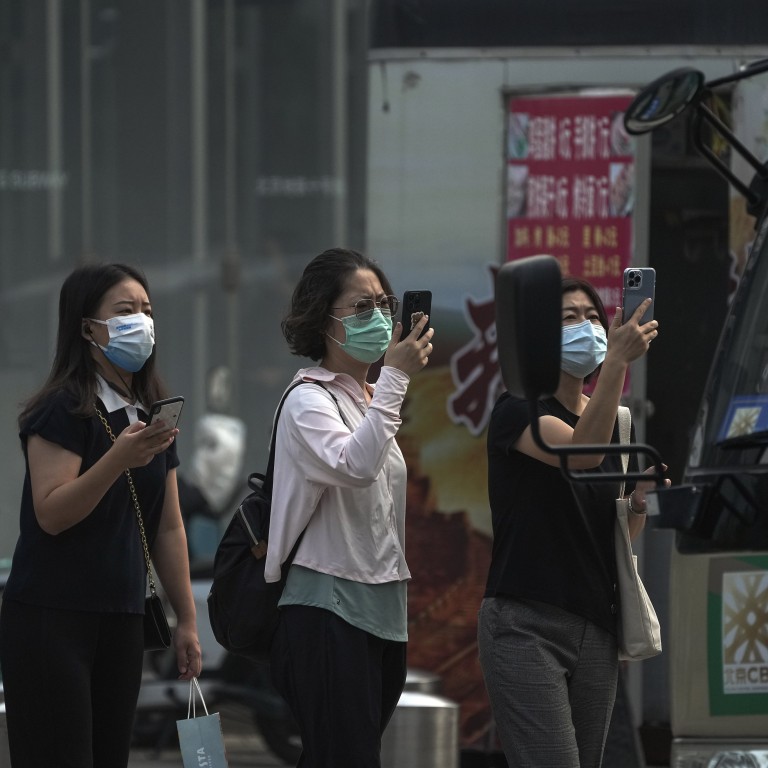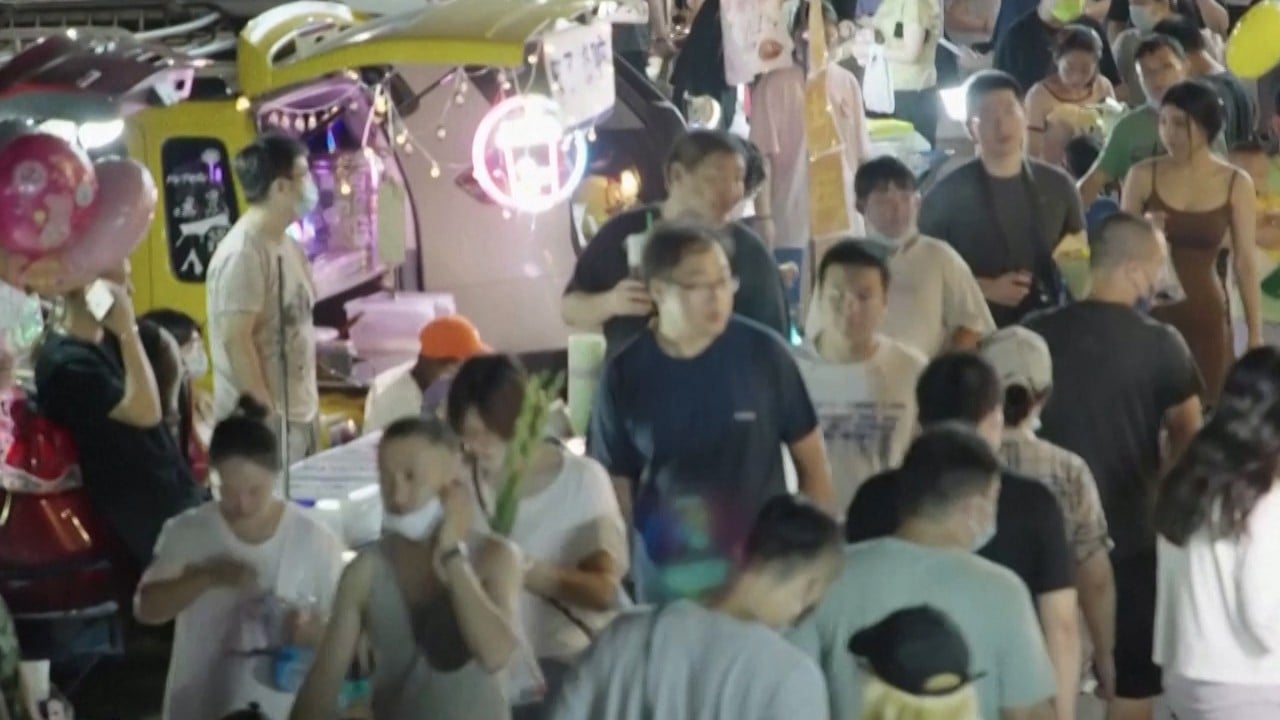
Commuter chaos as Beijing tightens Covid-19 controls
- Chinese capital ramps up pandemic measures ahead of next month’s party congress, leading to queues and missed trains at subway stations
- City in neighbouring Hebei province announces four-day lockdown and mass screening of residents
That led to chaos on Tuesday morning when commuters found subway gates would not open because they could not verify their Covid-19 tests. During morning rush hour, subway authorities announced that riders’ information would be checked manually.
Chinese internet users detained over Xinjiang Covid-19 ‘rumours’
On social media, commuters complained about having to queue and missing their trains.
Beijing has been on alert since last week, when a new outbreak hit several university campuses. Authorities locked down Communication University of China in the capital’s Chaoyang district, put close contacts of confirmed cases under Covid-19 management and demanded mass testing to prevent the cluster from spreading.
On Tuesday, Beijing reported 10 local confirmed cases and six asymptomatic infections, while China logged 188 local cases and 727 asymptomatic ones.
“All roads and bus stations will be controlled and all taxis and buses will temporarily stop services,” a government statement said. “All villages and residential compounds should leave only one entrance and exit open, with staff guarding it 24 hours a day. Residents should not go outside unless they have a medical emergency.”
Qin, a Sanhe resident who works in Beijing, said he had a normal long weekend and was able to dine in restaurants and enter all public venues. But when he woke up this morning, there were fences around his residential compound.
Covid-19 controls eased after protest in commuter town near Beijing
“I feel shocked, angry and sad,” he said. “One positive case was found and hundreds of thousands of people cannot go to work.”
He said he had to go to work for a project, so he sneaked out of his compound, walked an hour to a bus station that was still operating and arrived in Beijing after 3½ hours. He planned to stay at his workplace for four days.
Several cities around the country have intensified lockdowns and imposed stricter domestic travel restrictions. Chinese authorities asked cities – even those without an outbreak – to conduct regular mass testing until the end of October, a U-turn from a National Health Commission statement in early June.
On Friday, Vice-Premier Sun Chunlan, who oversees the country’s Covid-19 response, instructed State Council officials to take “resolute measures” to control the virus as soon as possible and minimise the effects on communities.
Beijing health authorities also reiterated that those travelling to Beijing from other cities should take two tests in three days, including one within 24 hours of arriving in the capital. They should refrain from gatherings or visiting densely populated areas for seven days and avoid going out until they have received a negative test result.

.jpg?itok=H5_PTCSf&v=1700020945)

